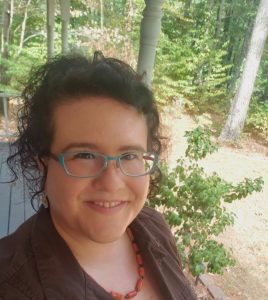Katie Striley
 Assistant Professor
Assistant Professor
Area of Study: Interpersonal Communication
Email: kstriley@unc.edu
Office: 300B Bynum Hall
Office Hours: Monday and Wednesday by appointment
Biography
PhD Communication, Ohio University, Athens, OH, 2014
M.A. Communication, Missouri State University, Springfield, MO, 2008
B.A. Communication, Truman State Univ., Kirksville, MO, summa cum laude, 2003
Dr. Striley researches social rejection and risk communication. Through a critical/interpretive lens, she explores the discursive construction of exclusive realities and systems of privilege, the myriad ways communication enables, constrains, resists, and transforms our sense of the possible, and the transformative potential of communication to make better social worlds. She tends to explore subjects such as stigma, ostracism, bullying, social rejection, conflict management, dialogue, and deliberation. Her research often takes her to realms of ethics, morality, identity, and social belonging, particularly in the contexts of interpersonal and health communication. She recently finished a book, Ostracism in the Age of Alienation, which presents a theoretical model of ostracism’s forms, functions, and processes. Data presented in the book is a culmination of more than a decade of work exploring ostracism in adolescence, young adulthood, healthcare, and the workplace.
Dr. Striley has created two theories about interconnections of social belonging, identity, and morality, with her colleague Dr. Kim Field-Springer. Risk orders theory (ROT) explains how risk discourses inadvertently construct social, moral, and identity threats by constraining imaginative potential, agency, and definitions of self. Her ROT publications have received numerous awards and appeared in journals such as Health Communication and Health, Risk, & Society. Also co-authored with Dr. Kim Field-Springer, managing meanings of embodied experiences (MMEE) theory describes the potential to direct interpersonal and societal health transformations through being (identity), doing (practice), and directed becoming (transformation) as individuals mindfully manage meanings of experiences as bodied beings. MMEE theory publications appear in Health Communication and Journal of Applied Communication Research. While ROT focuses on the constraining aspects of health discourses, MMEE theory offers ways of becoming unstuck from societal constraints about health identities and practices.
